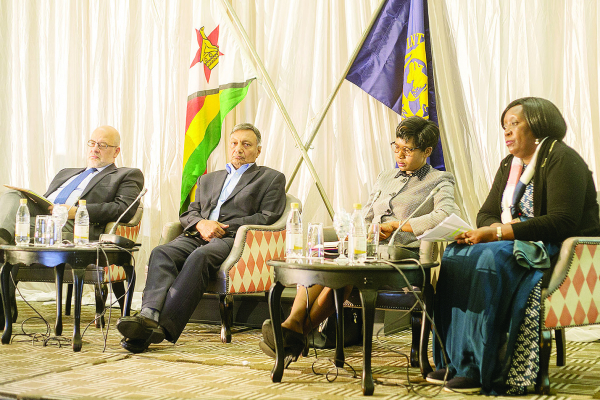
WITHOUT vast restructuring of debt, all the continent’s recent gains will be wiped out.
By Nobel Peace Prize laureate
The COVID-19 outbreak engulfing the world is finally afoot in Africa. The health, human and economic toll will be vast for our continent’s 1,3 billion inhabitants. The damage will not stop at our shores.
The global connections between populations and economies mean that our suffering will reverberate through the rest of the world — and back again.
We must collectively do all we can to minimise its impacts on the continent. We can start by exploring immediate debt relief for all of Africa.
Africa needs an immediate emergency fiscal stimulus worth US$100 billion in addition to the International Monetary Fund (IMF)’s already programmed US$50 billion of regular support to tackle the crisis. The crisis will not be short-lived: Additional support over the next two to three years is required.
The continent’s debt-service payments to bilateral creditors in 2020 amount to about US$14 billion. Africa welcomes all debt-alleviation initiatives coming from multilateral financial institutions, notably the World Bank and IMF.
An agreement must be sealed quickly within the international finance community, and should cover all lender countries — including creditors who aren’t Paris Club members. There is precedent for these measures: For example, Paris Club creditors granted a full debt rescheduling to Asian countries affected by the December 2004 tsunami in a coordinated manner.
- Chamisa under fire over US$120K donation
- Mavhunga puts DeMbare into Chibuku quarterfinals
- Pension funds bet on Cabora Bassa oilfields
- Councils defy govt fire tender directive
Keep Reading
More will be needed, however. Africa’s emerging corporate sector is at risk, and we must preserve and protect it.
We need to deal with commercial sovereign and corporate debt. The IMF, G20 and the European Union should heed the African finance ministers’ call to create a special-purpose vehicle to help their nations deal with those debt obligations. Saving Africa’s corporate sector is of mutual benefit; it saves jobs on both sides and ensures a global recovery.
In Ethiopia, they have made great progress in the last few years, halving the poverty rate in a decade, almost doubling incomes, and restoring peace and stability. This crisis could erase all these hard-earned gains.
Ethiopia’s Homegrown Economic Reform Plan, released last year, anticipated a 10% increase in exports and a 32% increase in remittances, all supporting a 40% increase in our reserves, creating a more resilient economy by 2030.
The targets are now in tatters.
Ethiopia’s flagship airline is at risk, too — it is nearly impossible to meet its obligations operating at 15% capacity. The same holds for the other 10 largest airline companies in Africa.
The international community should take the lead in creating mechanisms by which sovereign issuers suspend contractual market debt service. New approaches are needed that allow for the flexibility and sustainability of African economies. The most urgent requirement is to suspend debt payments with the plurality of creditors.
No country will come out unscathed in this pandemic. However, there are real, life-saving measures that the world can take to help Africa and, in turn, its populations. We are optimistic about our long-term future, and realise we must take action. Now!











